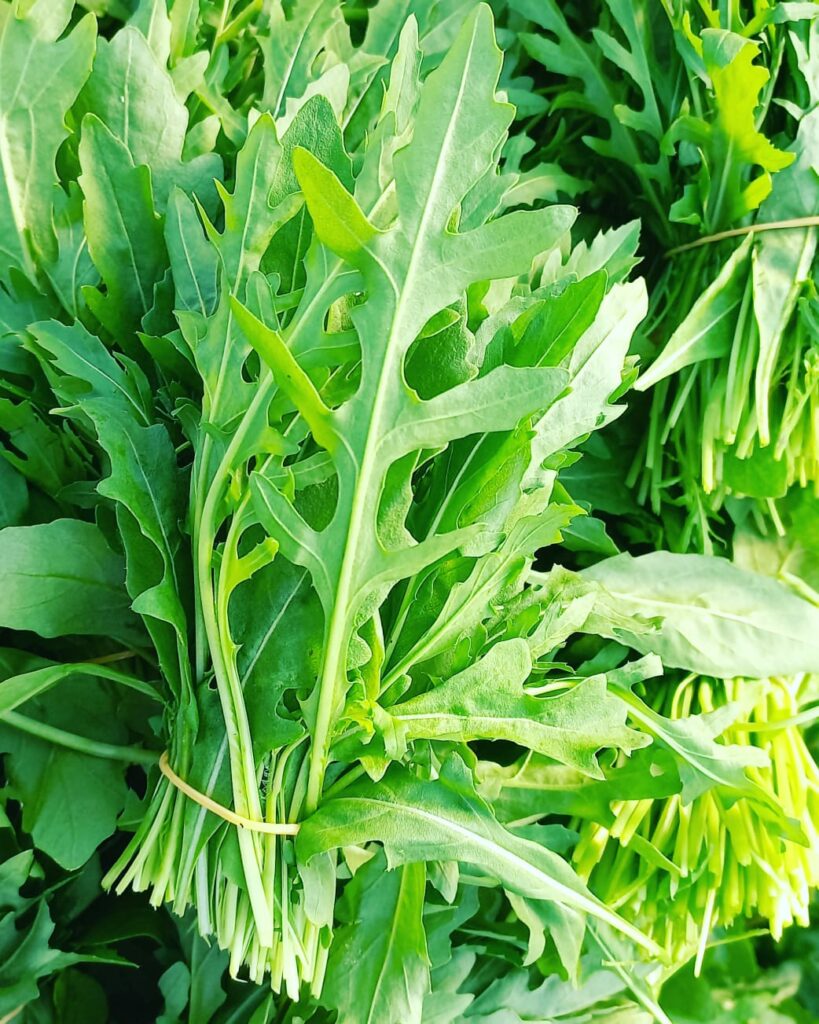Arugula, also known as rocket or rucola, is an aromatic herb from the Brassicaceae family, distinguished by its serrated leaves and slightly peppery, pungent flavor.

Originally from the Mediterranean, arugula has gained popularity in many cuisines around the world for its distinctive flavor and nutritional benefits. It is rich in vitamins and minerals, including vitamin K, vitamin C, folate, and potassium. The beneficial properties of arugula include antioxidants that can help reduce inflammation and support heart health. It is especially recommended for those seeking to increase their intake of leafy greens and improve digestion, thanks to its diuretic and detoxifying effects. However, the high nitrate concentration in arugula may be problematic for individuals with kidney issues or high blood pressure, so excessive consumption is not recommended. Additionally, people with allergies to Brassicaceae family plants should avoid arugula to prevent adverse reactions. Overall, arugula can be a valuable addition to a balanced and varied diet, but it is important to consume it in moderation and be aware of any individual sensitivities.
TYPICAL SEASONALITY
Arugula thrives in cool climates, making its peak seasons spring and fall. During these times, arugula has a fresher taste and more pronounced aroma. However, modern cultivation techniques allow for its availability year-round in some locations, though its presence may vary. Additionally, arugula is cold-resistant and can be grown in winter in some regions, especially in greenhouses or areas with mild temperatures.
Nutritional Values
| Nutrient | Value |
|---|---|
| Calorie | 25 kcal |
| Protein | 2,6 g |
| Fat | 0,7 g |
| Carbohydrates | 3,7 g |
| Fibre | 1,6 g |
| Zuccheri | 2,1 g |
| Vitamina A | 2373 IU |
| Vitamina C | 15 mg |
| Vitamina K | 108,6 µg |
| Folati | 97 µg |
| Calcio | 160 mg |
| Ferro | 1,46 mg |
| Potassio | 369 mg |
| Magnesio | 47 mg |
